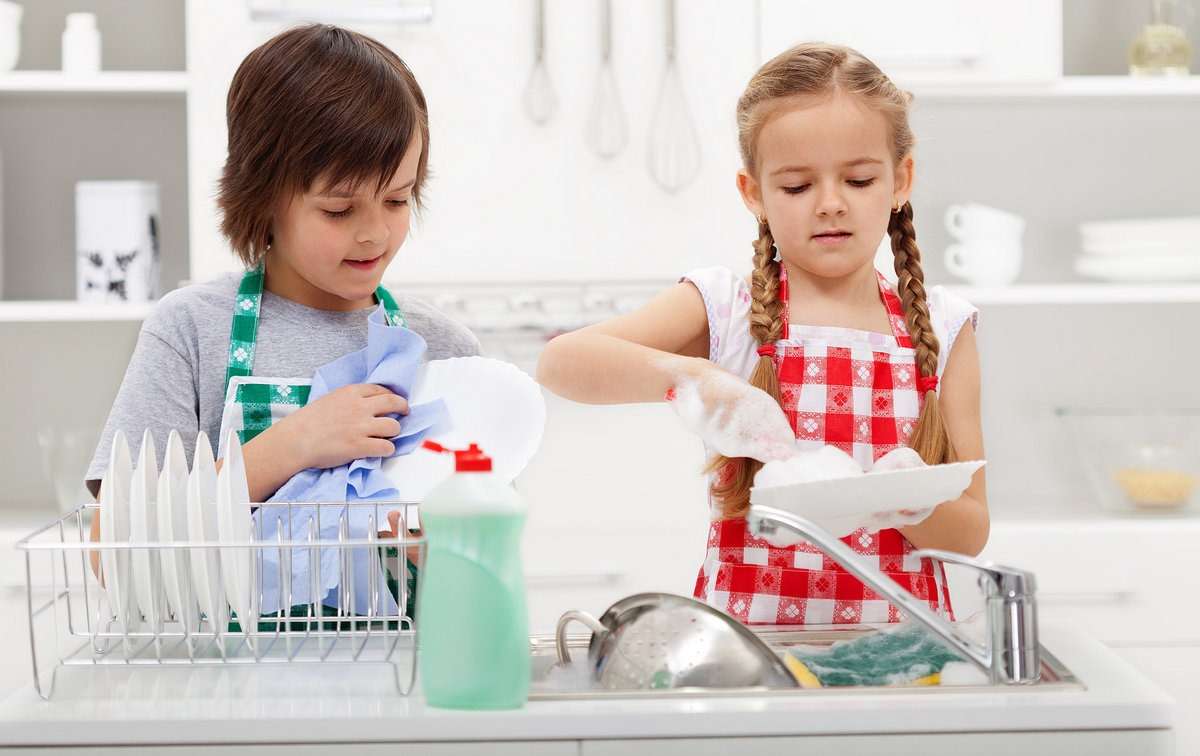Everyone wants to raise children who become responsible adults, but this will not happen on its own. Children need to be taught what is meant by the word responsibility. This can be done in a variety of ways, such as having your child take care of pets, do homework for school subjects on their own, or keep a room clean.
But there is another effective tool that many parents have begun to forget about recently – assigning certain household duties to the child. This is a great way to instill a sense of responsibility in children even at a young age, as there are many activities that even a child can successfully handle.
Why should children do household chores?
Even if your child is only a few years old, he should still have minor household tasks. Thus, you allow him to become responsible for some business.
When you begin to pay attention to this issue from an early age, the child gets acquainted with what a sense of accomplishment is. And this experience is useful in many ways. Children will also be able to get used to doing a mandatory routine, which will be very useful for them in the future.
Housework will set up the youngster for adulthood when he should deal with himself or his own family. It is vastly improved assuming he learns family obligations slowly as he grows up than attempting to pack this information into himself right exactly when he leaves his parental home and starts a free life.

visit also it: Stars Academy Notes
What duties are appropriate at a particular age
There are a lot of chores around the house, so it’s easy to find a task that matches your child’s age. For example, toddlers can help you pick up dirty clothes before washing or clean up their toys after playing. The older children get, the more voluminous and responsible tasks they can cope with.
A child at the age of six can already sweep the floor and clear the dishes from the table (you can start with plastic items if you are afraid that he will break the glass ones). At eight years old, he can be entrusted with a vacuum cleaner and the duty to clean the floors of debris with it.
You should intuitively understand what responsibilities the child can already handle on their own, while you should forget about your perfectionism. The lessons kids learn from doing chores around the house are worth a few missed stains on dishes or leftover dusty patches from vacuuming.
Using Positive Reinforcement
There are many ways to reward a child for a job well done. Toddlers are usually happy even with ordinary praise. But older children can already ask for something more significant in return for their efforts.
Your child’s age will play a big role in which form of positive reinforcement you choose. For example, children aged three to six will be happy to receive a small toy or some kind of art supplies every week. As the child matures, this reward system can transform into pocket money. Moreover, the amount can be fixed or based on the duties that the child performed during a particular period.
Scheduling household chores

A clear household schedule is a great tool for any family, as it allows you to keep track of responsibilities and assign them to one or another family member. This chart can also be used to reward the child’s efforts.
For example, you can stick funny stickers on it or write words of praise for a job well done. You can also organize a competition, for example, if the child completed all his tasks during the week, then at the end of it, he can choose a prize for himself.
Changing the system as the child grows
The older the children, the more difficult their duties should become, as now they can take on more responsibility. Instead of doing several household chores a week, a child can handle several chores each day.
As the tasks become more difficult, many parents start rewarding their children with pocket money for this very reason. For many children, household chores become their first “work”. It teaches them that rewards (monetary or otherwise) are the result of effort. In addition, the child must necessarily understand that the main reward for doing household chores is cleanliness in the house and a sense of accomplishment.
read more
Why Montessori Curriculum is the Best Educational System of the 21st Century

More Stories
VMware 1V0-21.20 Exam Dumps – Trick To Passing In First Attempt
Greatest Nutanix NCM-MCI-5.15 Exam Dumps With Success Ensure [2023]
Excellent Advantages to Choose UK to Study MBA in UK